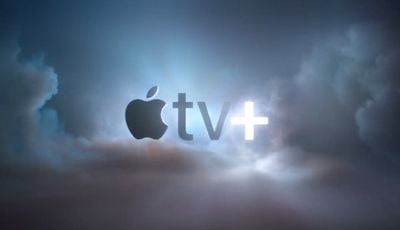Apple TV+ Streaming Quality Lowered in Europe to Reduce Network Strain
The European Union has asked streaming services to temporarily reduce streaming quality to ease the strain on broadband networks caused by people working from home, a request that Netflix, YouTube, and now Apple TV+ have complied with.

Netflix cut streaming data bitrates yesterday, while YouTube reduced streaming quality this morning. According to 9to5Mac, Apple TV+ streaming quality was recently lowered as well, resulting in lower resolution streams and heavily compressed content with visibly blocky artifacts.
9to5Mac says that the lowered quality is "very noticeable," especially on larger-sized television sets, and quite a departure from the 4K HDR content that Apple normally offers. Resolutions are said to be as low as 670 pixels tall.
Compared to other services like Netflix that have also lowered quality to save data, Apple's streaming quality is described as "particularly aggressive" and akin to the kind of quality one might expect from "streaming on a phone over a 3G network."
At the current time, streaming content providers have only been asked to lower streaming quality in Europe, so the lower streaming rates do not affect the United States and other countries. The United States has not called on streaming content providers to implement data reduction measures.
It's not clear how long Apple plans to stream with reduced quality and whether tweaks will be made for a better compromise between quality and data usage. Netflix has said that it will continue using the lower quality stream for the next 30 days.
Popular Stories
The long wait for an Apple Watch Ultra 3 appears to be nearly over, and it is rumored to feature both satellite connectivity and 5G support.
Apple Watch Ultra's existing Night Mode
In his latest Power On newsletter, Bloomberg's Mark Gurman said that the Apple Watch Ultra 3 is on track to launch this year with "significant" new features, including satellite connectivity, which would let you...
Apple's next-generation iPhone 17 Pro and iPhone 17 Pro Max are just over two months away, and there are plenty of rumors about the devices.
Below, we recap key changes rumored for the iPhone 17 Pro models.
Latest Rumors
These rumors surfaced in June and July:Apple logo repositioned: Apple's logo may have a lower position on the back of the iPhone 17 Pro models, compared to previous...
The iPhone 17 Pro Max will feature the biggest ever battery in an iPhone, according to the Weibo leaker known as "Instant Digital."
In a new post, the leaker listed the battery capacities of the iPhone 11 Pro Max through to the iPhone 16 Pro Max, and added that the iPhone 17 Pro Max will feature a battery capacity of 5,000mAh:
iPhone 11 Pro Max: 3,969mAh
iPhone 12 Pro Max: 3,687mAh...
Apple's position as the dominant force in the global true wireless stereo (TWS) earbud market is expected to continue through 2025, according to Counterpoint Research.
The forecast outlines a 3% year-over-year increase in global TWS unit shipments for 2025, signaling a transition from rapid growth to a more mature phase for the category. While Apple is set to remain the leading brand by...
AppleInsider's Marko Zivkovic today shared a list of alleged identifiers for future Mac models, which should roll out over the next year or so.
The report does not reveal anything too surprising, but it does serve as further evidence that Apple is seemingly working on new models of every Mac, including the MacBook Air, MacBook Pro, iMac, Mac mini, Mac Studio, and Mac Pro.
Apple is...
The upcoming iPhone 17 Pro and iPhone 17 Pro Max are rumored to have a slightly different MagSafe magnet layout compared to existing iPhone models, and a leaked photo has offered a closer look at the supposed new design.
The leaker Majin Bu today shared a photo of alleged MagSafe magnet arrays for third-party iPhone 17 Pro cases. On existing iPhone models with MagSafe, the magnets form a...


















